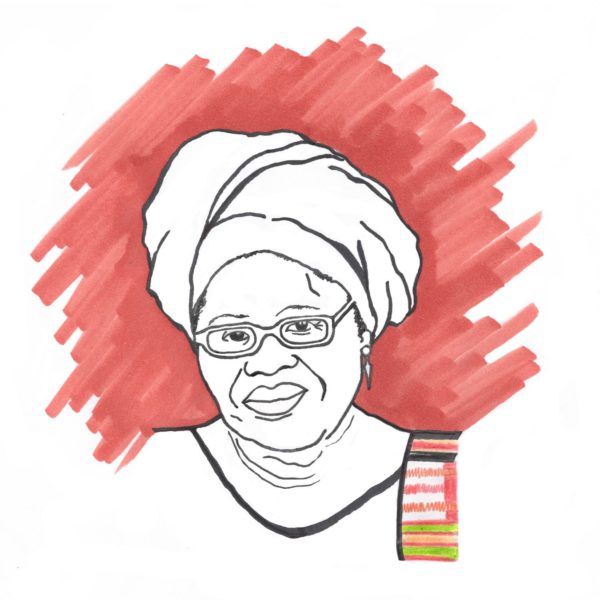
For March 2018’s Women’s History Month, Enkare Review magazine is listing the 30 African literary women who have inspired them. The project, curated by one of the magazine’s editors, Rosie Olang’, is ongoing on their Facebook, Twitter, and Instagram pages. Each day, one writer is revealed. So far, 12 writers have been listed, from March 1 to March 12: Ama Ata Aidoo, Nawal El Saadawi, Buchi Emecheta, Mariama Bâ, Calixthe Beyala, Leila Aboulela, Fatema Mernissi, Bessie Head, Tsitsi Dangarembga, Yvonne Adhiambo Owuor, Yvonne Vera, and Nardine Gordimer.
Here are the profiles of the 12 writers, as written by Enkare Review:
Ama Ata Aidoo
The first writer we are going to highlight is Ama Ata Aidoo. Ama Ata Aidoo(b. 1942) is a Ghanaian author, poet, playwright and academic. Her first novel Our Sister Killjoy or reflections from a Black eyed squint, was published in 1977. Other titles by her include Anowa, No Sweetness Here, An Angry Letter and the Girl who can. Professor JAcqueline BAnerjee had this to say about her, hers is a generous as well as a volcanic nature, “a wild heart but not a mean one”, and compassion and humour, added to patriotism, help balance the bitterness and “negativism” which might otherwise be ‘so corrosive”.
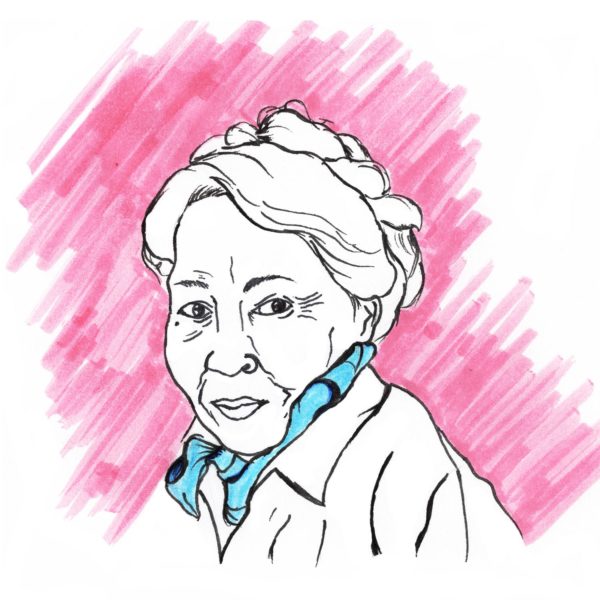
Nawal El Saadawi
Nawal El Saadawi (b 1936) is an Egyptian writer, activist, physician and psychiatrist. Nawal has published over 50 titles and continues to participate in the literary world through lectures and speaking engagements. Some of her most popular books include Women and Sex, 1969, Woman at Point Zero, 1982 and her autobiography daughter of Isis, 1999. Nawal has been an activist throughout her life,fiercely opposing female genital mutilation, critiquing religion and protesting Tahrir Square in 2011. Nawal lived in exile from 1988 to 1996 when she moved back to Egypt.
Last year BBC made a documentary on her life Titled “She spoke the Unspeakable” available at https://editorium.co.uk/
she-spoke-the-unspeakable/
Buchi Emecheta
Buchi Emecheta (b.1944) was a Nigerian-born novelist, playwright and children’s books author. Her best-known novels, Second-class Citizens (1974), The Bride Price (1976), and The Joys of Motherhood (1979), expose the injustice of traditional, male-oriented African social customs.In her writing, Emecheta’s heroines challenge restrictive customs and aspire to economic and social independence. Following her death in January 2017, her family set up two companies, Omenala Press to publish and relaunch Emecheta’s work, and the Buchi Emecheta Foundation to promote literary projects in the UK and Africa.
Mariama Bâ
Mariama Bâ (1920 – 1981) was a Senegalese author famed for her books, ‘Une si longue Lettre’, So long a letter and ‘Chant Ecarlate’ Scarlet Song. Her work has been translated into numerous languages and is a staple of francophone literature courses.Throughout her life, she tried to reconcile her grounding in her culture, her Muslim faith, and her openness to other cultural horizons. Bâ worked as a teacher from 1947 to 1959, and in the late 1970’s became a vocal activist for women’s rights in Africa and a critic of the neocolonial system developing post-independence in many African countries.
Calixthe Beyala
Calixthe Beyala (b 1961) is a Cameroonian-French writer. At 17, Beyala received a scholarship to study in France where she obtained her baccalaureate.
She published her first book, C’est le soleil qui m’a brûlée, at the age of 23, after which she chose to become a full-time writer. Of the 20 books she has published 4 have English translations including Loukoum: the ‘little prince’ of Belleville, The sun hath looked upon me, Your name shall be Tanga and How to Cook Your Husband the African Way.
Leila Aboulela
Leila Aboulela Official (b 1964) is a Sudanese writer. Aboulela grew up in Khartoum where she pursued a degree in Economics and later a Masters in Statistics at the London School of Economics. She started writing while working part-time as a research assistant. Her personal faith and the move, in her mid-twenties, from Sudan to Scotland are a major influence on her work. Her short story “The Museum” was awarded the first Caine Prize for African Writing in 2000. She is also the author of four novels: The Translator (1999); Minaret (2005), Lyrics Alley (2010) and The Kindness of Enemies (2015).
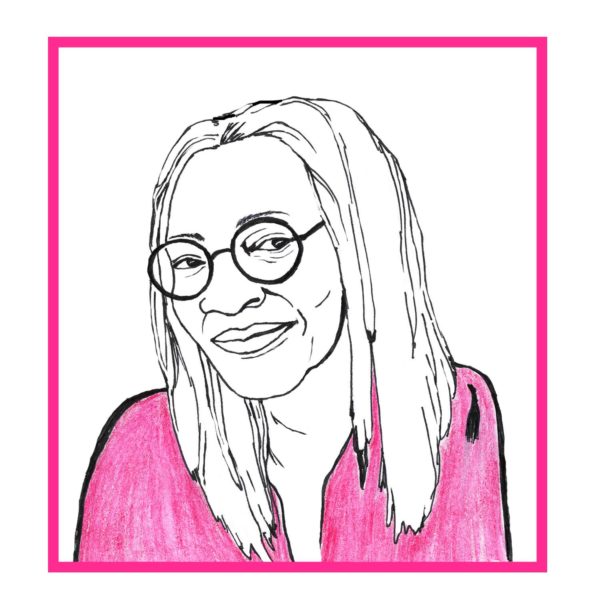
Yvonne Vera
Today we celebrate Yvonne Vera. Yvonne Vera (b. 1964-2005) was an author from Zimbabwe. Her novels are known for their poetic prose and strong women characters. She published one collection of short stories, Why don’t you carve other animals (1992) and five novels, Nehanda (1993), Without a Name (1994), Under the tongue (1996), Butterfly burning (1998) and the Stone Virgins (2002) which won the Macmillan Prize for African Writing. From 1997 to 2003, Vera also worked as the director of the National Gallery of Zimbabwe in Bulawayo, a position she held with much enthusiasm and flair. Vera was known for her obsessive writing habit, often commiting 10 hours a day to her craft. At the time of her death in 2005 she was working on her 6th novel, Obedience.
Fatema Mernissi
Fatema Mernissi (1940- 2015) was a Moroccan sociologist and writer. Known for her pioneering work in the field of Islamic feminism, Mernissi has published several books among them: Beyond the Veil (1975), The Veil and the Male Elite: a Feminist Interpretation of Islam (1987) and Dreams of trespass: Tales of a Harem Girlhood (1995). Fatema was also a longtime faculty member of Mohammed V University in Rabat. In 2003, Mernissi was awarded the Prince of Asturias Award along with Susan Sontag. Author Ausma Zehanat had this to say about her work: “So much of Fatima’s work was about freedom of thought. the autonomy of the individual, and the right to interrogate tradition using reason and free will.”
Bessie Head
Bessie Head (1937 –1986), was born in South Africa and lived in Botswana for most of her adult life. Born to a white South African mother and a black South African father during apartheid, when interracial relationships were still illegal, she was taken from her mother at birth and raised in a foster home until the age of thirteen. Her works deal with issues of discrimination, the plight of refugees, racialism, African history, poverty, and interpersonal relationships. Her published novels include A Question of Power (1973), Maru (1971), and A Bewitched Crossroad: An African Saga (1984); a collection of short stories, The Collector of Treasures (1977), and the acclaimed oral histories Serowe: The Village of the Rain Wind (1981). Following her death in 1986, there is now a permanent display of Bessie’s effects, at the Khama Memorial Museum in Serowe, Botswana.
Tsitsi Dangarembga
Tsitsi Dangarembga (b. 1959) is a Zimbabwean writer and filmmaker. Dangarembga studied medicine at Cambridge University and later pyschology at the University of Harare where she discovered her passion for theatre. Some of Dangarembga published works include a short story, The Letter (1985), a play, She No Longer Weeps (1987), a novel, Nervous Conditions (1988), its sequel, The Book of Not (2006). Her latest book, The Mournable Body, is slated for release in August 2018. Dangarembga studied film direction at the Deutsche Film und Fernseh Akademie in Berlin, where she was involved in the production of various narrative and documentary films. Tsitsi also started the International Images Film Festival in 2002 to encourage the sharing of multicultural stories from all over the world through a female lens.
Yvonne Adhiambo Owuor
Yvonne Adhiambo Owuor (b 1968) is a Kenyan writer. Owuor studied English at Kenyatta University, pursued an MA in TV/ Video development at Reading University and later a MPhil in Creative Writing from the University of Queensland, Australia. Owuor’s story, Weight of Whispers, won the Caine Prize for African writing in 2003. Her first novel, Dust, was published in 2014. Owour has this to say about Dust, “I wish to understand something about my country, one that murders the best of its own. What kind of nation gets terrified of a great imagination? What kind of people annihilate holders of a persistent and transcending dream?”
Nadine Gordimer
Nadine Gordimer (1923 – 2014) was a South African writer, political activist and recipient of the 1991 Nobel Prize in Literature. Gordimer’s works include novels, short stories, and essays often addressing moral and political dilemmas of living in a racially divided country.The characters she builds in her writing present nuanced points of view, revealing more through the choices her characters make than through their claimed identities and beliefs. Some of her published works include ‘The Lying days‘ (1953), ‘Occasions of loving‘ (1963), ‘July’s People’ (1981) and ‘No time Like the Present’ (2012).
Graph image: Mariama Ba.
All images by Enkare Review.
To keep up, follow Enkare Review on Facebook, Twitter and Instagram.


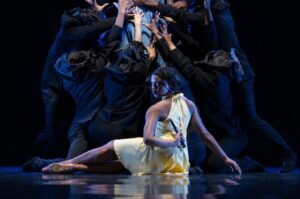


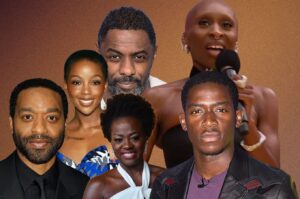

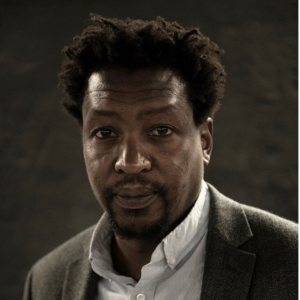

COMMENTS -
Reader Interactions